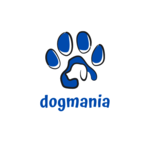Grain-free diets for dogs have become increasingly popular in recent years, driven by a growing awareness of pet nutrition and the desire to provide the best for our furry friends. However, with this popularity comes a host of myths and misconceptions. In this article, we aim to debunk some of the most common myths about grain-free diets for dogs, helping you make an informed decision about your pet's nutrition.
Myth 1: Dogs Are Carnivores and Don’t Need Carbohydrates
Debunked: While dogs are descendants of wolves, they are not strict carnivores. Dogs are actually omnivores, meaning they can digest and utilize nutrients from both animal and plant sources. Carbohydrates, including grains, can be a valuable source of energy and nutrients for dogs. The key is to ensure a balanced diet that meets all their nutritional needs.
Myth 2: Grain-Free Diets Are Healthier for All Dogs
Debunked: Grain-free diets can be beneficial for some dogs, particularly those with specific grain allergies or sensitivities. However, they are not inherently healthier for all dogs. Each dog has unique nutritional needs based on factors such as age, breed, activity level, and health status. A high-quality, balanced diet—whether grain-free or grain-inclusive—is essential for overall health.
Myth 3: Grains Are Just Fillers in Dog Food
Debunked: Grains like wheat, corn, and rice are not mere fillers; they provide valuable nutrients. Whole grains are rich in vitamins, minerals, and fiber, which support digestive health and provide sustained energy. While some lower-quality dog foods may use grains as cheap fillers, high-quality brands incorporate grains as part of a balanced nutritional profile.
Myth 4: Grain-Free Diets Are Always High in Protein
Debunked: Not all grain-free diets are high in protein. The protein content in dog food depends on the specific formulation and the sources of protein used. Some grain-free diets might use alternative carbohydrate sources like potatoes, peas, or lentils, which do not necessarily increase the protein content. Always check the ingredient list and nutritional information to ensure the diet meets your dog's protein requirements.
Myth 5: Grain-Free Diets Cause Heart Disease
Debunked: There has been concern about a potential link between grain-free diets and canine dilated cardiomyopathy (DCM), a serious heart condition. While the FDA has investigated this issue, the evidence is not conclusive. It is crucial to note that DCM can be caused by various factors, including genetic predisposition and nutritional deficiencies. Consulting with a veterinarian can help ensure your dog’s diet is balanced and meets their specific health needs.
Myth 6: All Grain-Free Foods Are Created Equal
Debunked: The quality of grain-free dog foods can vary significantly. Some may use high-quality ingredients and provide a well-balanced diet, while others might rely on low-quality protein sources and non-nutritive fillers. It is essential to choose reputable brands that prioritize quality ingredients and adhere to nutritional standards.
Myth 7: Grain-Free Diets Are Necessary for Dogs with Allergies
Debunked: While some dogs do have allergies to certain grains, protein sources like beef, chicken, and dairy are more common allergens. If your dog has food allergies, it is important to identify the specific allergen through proper testing and consultation with a veterinarian. Simply switching to a grain-free diet without identifying the actual allergen may not resolve the issue.
Myth 8: Homemade Grain-Free Diets Are Better Than Commercial Ones
Debunked: Homemade diets, whether grain-free or not, require careful planning to ensure they are nutritionally balanced. It can be challenging to provide all the essential nutrients your dog needs through homemade meals alone. Commercial grain-free dog foods are formulated by experts to meet nutritional standards, making them a more reliable option for most pet owners. If you prefer to prepare homemade meals, working with a veterinary nutritionist is essential.
Myth 9: Grain-Free Diets Are Suitable for All Life Stages
Debunked: Nutritional requirements vary significantly across different life stages—puppies, adults, and seniors have different dietary needs. A grain-free diet that is appropriate for an adult dog might not meet the specific needs of a growing puppy or an aging senior dog. Always choose a diet that is formulated for your dog's specific life stage and consult with your veterinarian to ensure it is appropriate.
Myth 10: Switching to Grain-Free Diets Can Be Done Abruptly
Debunked: Abruptly changing your dog’s diet can lead to digestive upset. When transitioning to a grain-free diet, it is important to do so gradually. Start by mixing a small amount of the new food with the current food, gradually increasing the proportion of the new food over a week or more. This gradual transition helps your dog’s digestive system adjust and reduces the risk of gastrointestinal issues.
conclusion
Grain-free diets can offer benefits for some dogs, particularly those with specific grain sensitivities or allergies. However, they are not a one-size-fits-all solution and come with their own set of considerations. Understanding and debunking common myths about grain-free diets can help you make an informed decision about your dog's nutrition. Always consult with your veterinarian to determine the best diet for your pet's unique needs, and remember that a balanced, high-quality diet—whether grain-free or not—is key to your dog’s health and well-being.



leave me your thoughts here